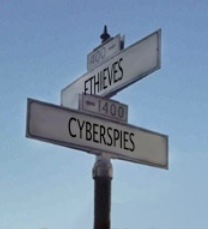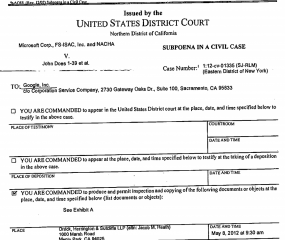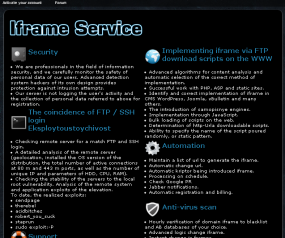Lost in the annals of campy commercials from the 1980s is a series of ads that featured improbable scenes between two young people (usually of the opposite sex) who always somehow caused the inadvertent collision of peanut butter and chocolate. After the mishap, one would complain, “Hey you got your chocolate in my peanut butter!,” and the other would shout, “You got your peanut butter in my chocolate!” The youngsters would then sample the product of their happy accident and be amazed to find someone had already combined the two flavors into a sweet and salty treat that is commercially available.
 It may be that the Internet security industry is long overdue for its own “Reese’s moment.” Many security experts who got their start analyzing malware and tracking traditional cybercrime recently have transitioned to investigating malware and attacks associated with so-called advanced persistent threat (APT) incidents. The former centers on the theft of financial data that can be used to quickly extract cash from victims; the latter refers to often prolonged attacks involving a hunt for more strategic information, such as intellectual property, trade secrets and data related to national security and defense.
It may be that the Internet security industry is long overdue for its own “Reese’s moment.” Many security experts who got their start analyzing malware and tracking traditional cybercrime recently have transitioned to investigating malware and attacks associated with so-called advanced persistent threat (APT) incidents. The former centers on the theft of financial data that can be used to quickly extract cash from victims; the latter refers to often prolonged attacks involving a hunt for more strategic information, such as intellectual property, trade secrets and data related to national security and defense.
Experts steeped in both areas seem to agree that there is little overlap between the two realms, neither in the tools the two sets of attackers use, their methods, nor in their motivations or rewards. Nevertheless, I’ve heard some of these same experts remark that traditional cyber thieves could dramatically increase their fortunes if they only took the time to better understand the full value of the PCs that get ensnared in their botnets.
In such a future, Chinese nationalistic hackers, for example, could avoid spending weeks or months trying to break into Fortune 500 companies using carefully targeted emails or zero-day software vulnerabilities; instead, they could just purchase access to PCs at these companies that are already under control of traditional hacker groups.
Every now and then, evidence surfaces to suggest that bridges between these two disparate worlds are under construction. Last month, I had the opportunity to peer into a botnet of more than 3,400 PCs — most of them in the United States. The systems were infected with a new variant of the Citadel Trojan, an offshoot of the ZeuS Trojan whose chief distinguishing feature is a community of users who interact with one another in a kind of online social network. This botnet was used to conduct cyberheists against several victims, but it was a curious set of scripts designed to run on each infected PC that caught my eye.











